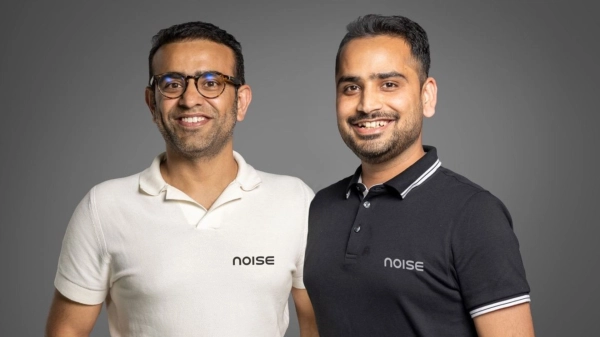Healthtech Startup Butterfly Learnings Bags $3.8 Mn to Provide Accessible Pediatric Behavioral Health Solutions

The fresh investment will fuel Butterfly Learnings' expansion efforts in scaling its technology-enabled therapy programs to empower neurodiverse children.
Healthtech startup Butterfly Learnings, specializing in pediatric behavioral and developmental health, has secured approximately $3.8 million (INR 32 Cr) funding in its Series A round.
The funding, led by Insitor Impact Asia Fund II and Enzia Ventures, marks a crucial step forward in advancing accessible and evidence-based solutions for children and families grappling with neurodiversity challenges.
The fresh investment will fuel Butterfly Learnings' expansion efforts, particularly in scaling its technology-enabled therapy programs to empower neurodiverse children to integrate into society and enhance their quality of life.
In 2022, the startups had raised $2 Million in seed funding round from noted investors including Insitor Partners, 9Unicorns and Venture Catalyst.
Commenting on the fresh capital infusion, Sonam Kothari, Cofounder & CEO of Butterfly Learnings, noted how this funding will help accelerate the delivery of accessible and evidence-based pediatric behavioral and developmental health solutions to families across India.
Need of Pediatric Behavioral & Developmental Health Solutions
Founded in 2021 by Sonam Kothari and Abhishek Sen, Butterfly Learnings aims to transform pediatric therapy regimens by offering individualized programs.
These are supported by a network of over 250 in-house trained therapists across Mumbai, Pune, Nagpur, and Nasik.
Their approach integrates Applied Behavior Analysis (ABA) with consultations from pediatric neurologists or developmental pediatricians, alongside additional therapies including occupational therapy, speech therapy, oral placement therapy, and sensory integration.
Currently serving around 2,000 families across 30 centers in Maharashtra, the startup eyes a broader reach, aiming to establish a 200-center network spanning multiple states and cities in India.
Nicholas Lazos, cofounder and CIO at Insitor Impact Asia Fund II, shed light on the pressing need addressed by Butterfly Learnings, citing statistics indicating that millions of children in India grapple with autism and other neurodevelopmental disorders.
“3 million children in India have autism, while one in eight (aged between 2–9) experiences at least one neurodevelopmental disorder. Unfortunately, the small number of standalone clinics currently available to parents lack a rigorous scientific approach to therapy provision,” Lazos said.
He lauded the startup's rigorous scientific approach to therapy provision, underpinned by the founders' clinical and technological expertise.
Neurodiversity in Children in India: Overview
The latest statistics on neurodiversity in Indian children show, about 15-20% of physically disabled children are also affected by neurodiverse conditions.
Around 1 in 68 children in India are affected by autism as per a 2021 study published in the Indian Journal of Pediatrics.
Some of the common neurodiversity conditions found in Indian children are: Autism Spectrum Disorders (ASD), Attention-Deficit Hyperactivity Disorder (ADHD), Dyslexia, and Tourette Syndrome.
These conditions stem from the natural diversity of human neurological functioning. It can impact how individuals think and view the world.
Awareness about neurodiversity, acceptance of neurodiverse children and creating inclusive environments is crucial for providing appropriate support.
These conditions can be managed through a range of treatment options. While medications can provide temporary relief for behavioral symptoms, they cannot fully cure the condition.
Therapy programs, such as psychological therapy, occupational therapy, vocational training, and speech therapy, can help children cope with the problem.
More schools are needed in India catering to the specific needs of neurodiverse children, as they often have difficulty coping in a regular school environment.
Smaller, private schools can provide better attention and support for these children compared to larger schools.
Stay tuned for more such updates on Digital Health News


















